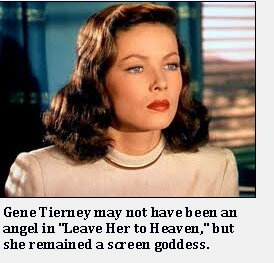|
film historian Noun, e.g., A film reviewer who has compiled a substantial body of work is often considered a film historian.
Definition: A nebulous title because so many who claim it are believed beneath it and so many credited with it disclaim it. Depending on the source, a film historian can be anyone from a movie reviewer to an academic who studies film and history. At minimum, a film historian must have demonstrated through published writings knowledge of some aspect of film history.
 History: Initially the title was associated with film critics or reviewers, synonyms at the time, and authors of books on the film industry. The definition was expanded to include professors and film library archivists in the 1960s when universities beyond Los Angeles introduced film studies to the curriculum of their fine arts departments. History: Initially the title was associated with film critics or reviewers, synonyms at the time, and authors of books on the film industry. The definition was expanded to include professors and film library archivists in the 1960s when universities beyond Los Angeles introduced film studies to the curriculum of their fine arts departments.
The 1970s saw the definition muddled by repercussions of a controversy over the definition of a film critic. Igniting this flap was a trend among newspapers, even small dailies, to replace syndicated critics with critics on staff. From mouths of the elite came the distinction between critic and reviewer. It was said a critic is someone who not only writes film reviews but has authored film criticism in essays and/or books. And only a critic could be accorded the status of film historian. Not surprisingly, movie reviewers with book or magazine deals were and are almost always syndicated.
 Meanwhile, many academics recruited to teach film history courses resisted the label of film historian because it invited the perception they were professors of film history. Better that a scholar be a professor of German who teaches German film history, or a professor of fine art who teaches the history of film production design, or a professor of history who teaches film and history. Involved here is more than academic stodginess and fixation with prestige. While film historians tend to focus on the industry, most academics who study film view the industry fthrough lenses of traditional academic disciplines. Meanwhile, many academics recruited to teach film history courses resisted the label of film historian because it invited the perception they were professors of film history. Better that a scholar be a professor of German who teaches German film history, or a professor of fine art who teaches the history of film production design, or a professor of history who teaches film and history. Involved here is more than academic stodginess and fixation with prestige. While film historians tend to focus on the industry, most academics who study film view the industry fthrough lenses of traditional academic disciplines.
For instance, compare two takes on the box office success of “Leave Her to Heaven” (1945), the first by film historian and Turner Classic Movies commentator Ben Mankiewicz, and the second by George Campbell, history professor at California State University, Sacramento.
According to Mankiewicz, the movie is an important example of a major star successfully risking her “brand” to play a role "against type." The star is “beautiful good girl” Gene Tierney, who plays an insanely jealous femme fatale. Tierney’s performance earned her an Academy Award nomination and resulted in the film becoming 20th Century Fox’s highest grossing film released in the 1940s.
Campbell, on the other hand, attributed the movie’s success to three factors: 1) it starred Gene Tierney, 2) it showed Gene Tierney in color, 3) it was released in 1945 when theaters were flooded by servicemen returning from World War II.
Related Terms: production value star system homage classic movie
Hollywood Lexicon Index
Return to Top
|



 History: Initially the title was associated with film critics or reviewers, synonyms at the time, and authors of books on the film industry. The definition was expanded to include professors and film library archivists in the 1960s when universities beyond Los Angeles introduced film studies to the curriculum of their fine arts departments.
History: Initially the title was associated with film critics or reviewers, synonyms at the time, and authors of books on the film industry. The definition was expanded to include professors and film library archivists in the 1960s when universities beyond Los Angeles introduced film studies to the curriculum of their fine arts departments.